OTR, Take 61: TV on the Radio - Return to Cookie Mountain
They let the devil in, he brought his pirate friends
Let me tell you: this isn't the album I expected to be writing about this morning. I spent Wednesday through Friday squirreled away in a hotel thinking, planning. Plotting. For the first time, I decided to ignore the mind trash that said annual planning retreats are for "successful" people – people who had made it – and chose to shed excuses and put in the work. And my friends, it was glorious.
You definitely want to listen to today's record. Tune in on Tidal or Spotify.
I don't think I was aware of how much noise there has been rattling through my head for the past five months, since McNugget's arrival. Just a constant din crowding out deep, uninterrupted thinking – hell, even when he's sleeping, I'm at attention for a cry. My life has not been my own. I gather that's part of the new state of affairs, but forgive me: I'm a slow learner.
So I spent my first days and nights away from the boy since his birth here, a place that led Tony Albrecht, upon seeing this photo, to ask: "Is that a fucking Best Western?"
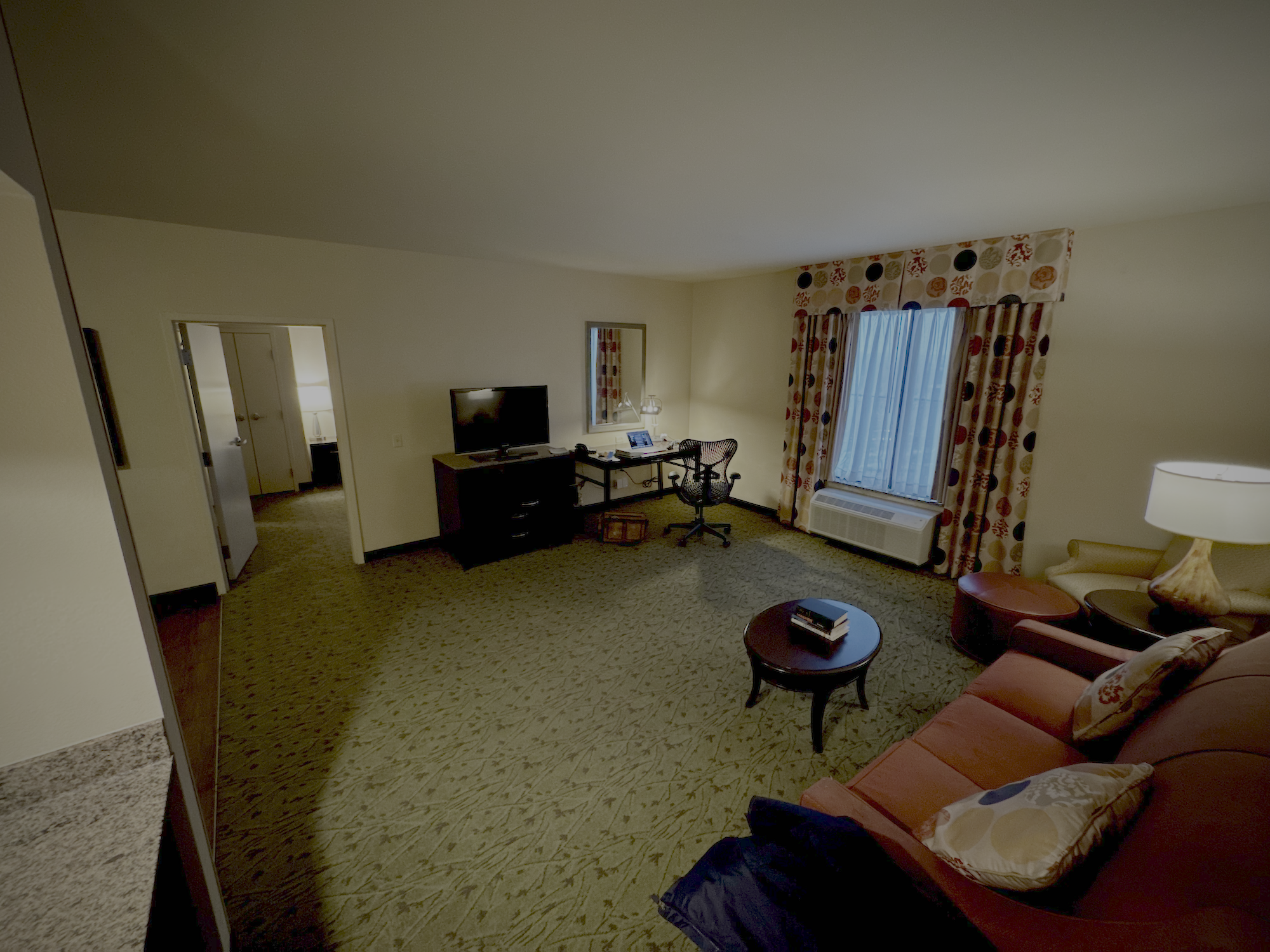
C'mon now. That's a Hilton Garden Inn. And those polka dot curtains? 🤌🏻
Anyway, I spent much of the retreat listening to jazz (Money Jungle by Duke Ellington, Charles Mingus, and Max Roach was on heavy rotation) and thought I'd wake up this morning in that frame of mind. I still have some planning to finish this weekend. But no: I dropped the needle on this perfect album, another of my all-time favorites, and let the devil in. Next week, a holiday treat. But for today, let's party with the pirates.
Oh, walk around, know you are beautiful
Aimless and alive, broken and divine
Like so many "New York" bands, TV on the Radio mostly comes from the provinces. The man with the astonishing voice behind the band, Tunde Adebimpe, and the band's guitarist, Kyp Malone, are Pittsburgh-born and bred. I learned this early in the band's touring career, as they always, always stopped in Pittsburgh. One night, before a show at Mr. Small's in August 2007 (about a year after this album came out), I saw Tunde and an older man who looked like Tunde from thirty years in the future had come back to see the show.
I walked up and introduced myself, and I cannot tell you how excited Tunde was to introduce his father. His and Kyp's family were all there for the show and they were hyped up. It is so easy to think about artists and public people as somehow different from us. They're not: they are exactly like us, but often lonelier: because we view them as these untouchable royal figures, it's really hard for them to have normal relationships. Their families are often a refuge from this, for their family members know just how painfully human they are.
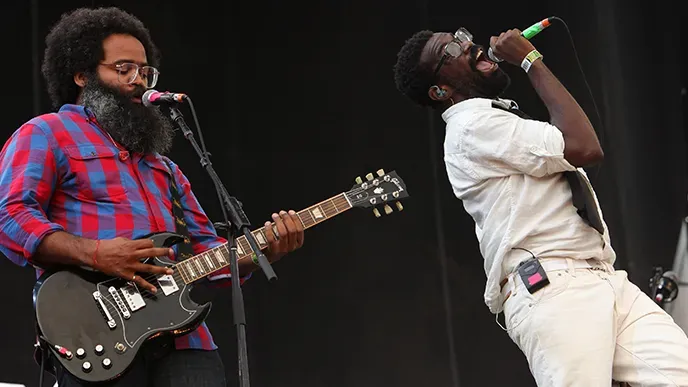
I've seen the band about ten times, and they played like their family's pride depended on it that night. What a show.
I remember thinking at the time how odd it must be to put so much of yourself into your art and then perform it on a big stage for your friends and family. It's one thing to craft something potent, a distilled essence of yourself and to give it to people you don't know. Something entirely different to look into the eyes of people who really matter to you while performing those same things.
So let's get the necessary piece out of the way when discussing Return to Cookie Mountain. That song.
Say say my playmate, won't you lay hands on me?
Mirror my malady? Transfer my tragedy?
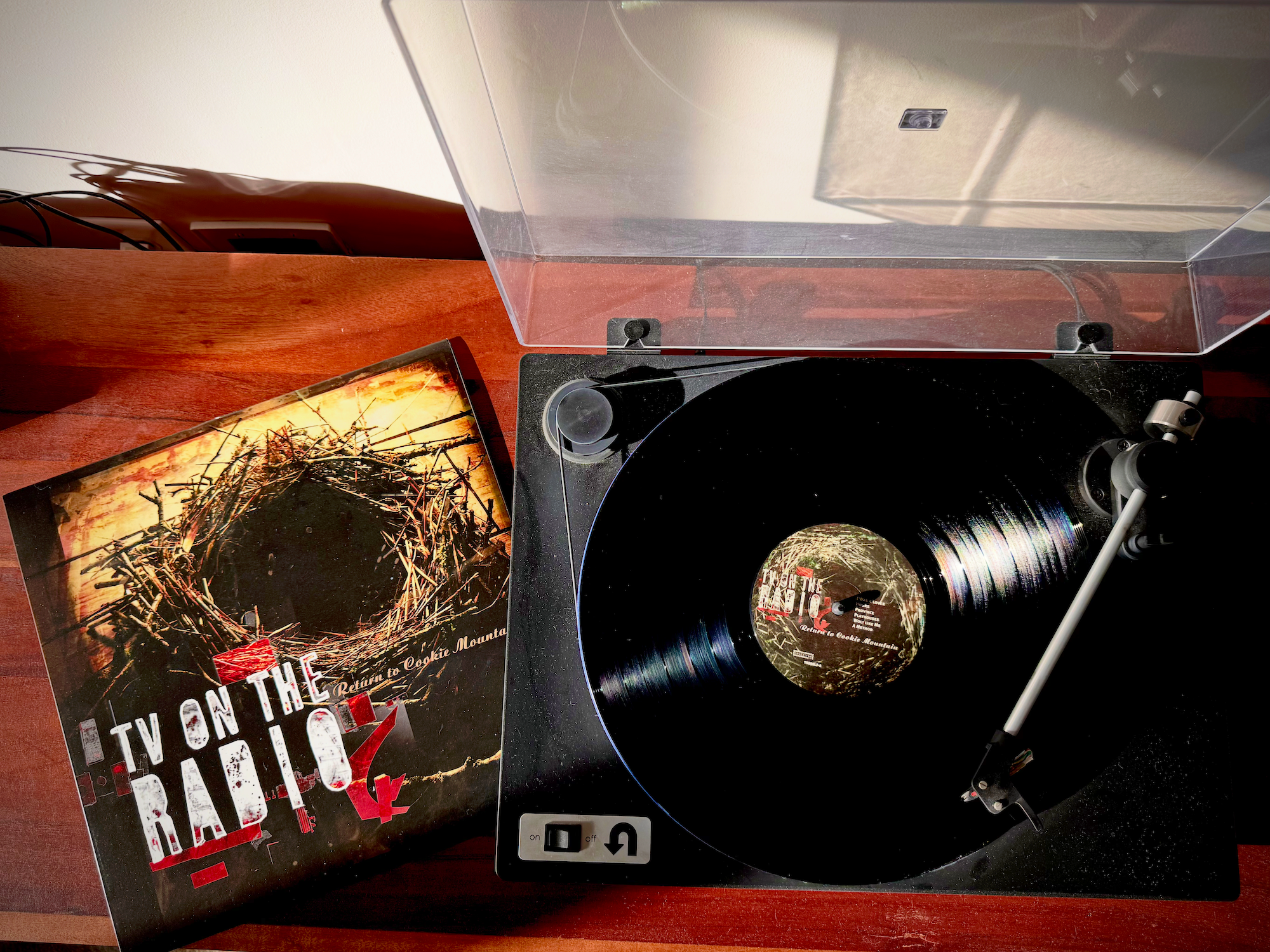
I first ran across TVOTR when they released their first EP, Young Liars. It's not often that you run across something that sounds familiar and yet completely new or alien. From the very beginning, TVOTR melded the familiar tropes and structures of rock and pop music, but always disturbed the sound or our expectations just enough to stop me cold. Their first full album, Desperate Youth, Bloodthirsty Babes, is an excellent album. You can tell now, in hindsight, that the band was still finding itself: Tunde and Kyp were figuring out how to sing together, Dave Sitek was performing his magic on the production, but the drum loops and drum machine didn't have the punch that later albums would find after bringing Jaleel Bunton into the fold.
I liked the band. Quite a bit. But it wasn't until I heard "Wolf Like Me" that I got it. Here's the second time they played it on Letterman:
This song is transcendent: the vanishingly rare perfect embodiment of exactly what it means to be. Nine months after this performance, that stage gave birth.
I don't want to spend a huge amount of time on "Wolf Like Me" because if there's only one thing you've heard from TVOTR, it's almost certainly this song. But I do want to point out a few things from this video.
- Just listen to that bass tone. God, it's rich and aggressive and booming. We miss you, Gerard.
- These are incredibly well mic'd and mixed drums for a TV appearance.
- Look at how Sitek is playing guitar! He has enough gain running through those pickups that he can play his part by fingering the fretboard and smashing a casaba against the body of his guitar.
- Kyp is just cool as fuck.
- Tunde is possessed by Dionysus. He is electric: at once charming and vaguely menacing, alluring and sharp edges.
Now imagine what this is like in an actual club, not in a TV audience. I have never once seen these guys live (and I've seen them in tiny clubs to large venues) where the entire crowd doesn't lose themselves during this song – even those who are too cool and watch from a distance cannot help themselves. By the time the drop comes (did I mention this rock song has a drop?!), every last sumbitch in that audience is sweating.
Now imagine being on stage and performing it for your father, the psychiatrist.
We locked eyes, felt our loneliness abate
I've been thinking a lot, lately, about the burden we give our loved ones when we create things that reveal things about ourselves that most people keep hidden. I have to think that Tunde just had to pretend his parents were there when performing "Wolf Like Me" or some of their other songs. But that kind of relationship isn't unipolar. I've felt a growing awareness that my work – my writing, especially, but my professional work too – will be something McNugget will have to live with and confront too.
Pennhollow has some wild things in it, difficult human situations that I explore in ways that I don't generally talk with people about. One of the great things about writing, especially writing fiction, is it gives you license to really explore and push on boundaries. It does, however, inherently put more of you out there, and a part of you that is more delicate and vulnerable.
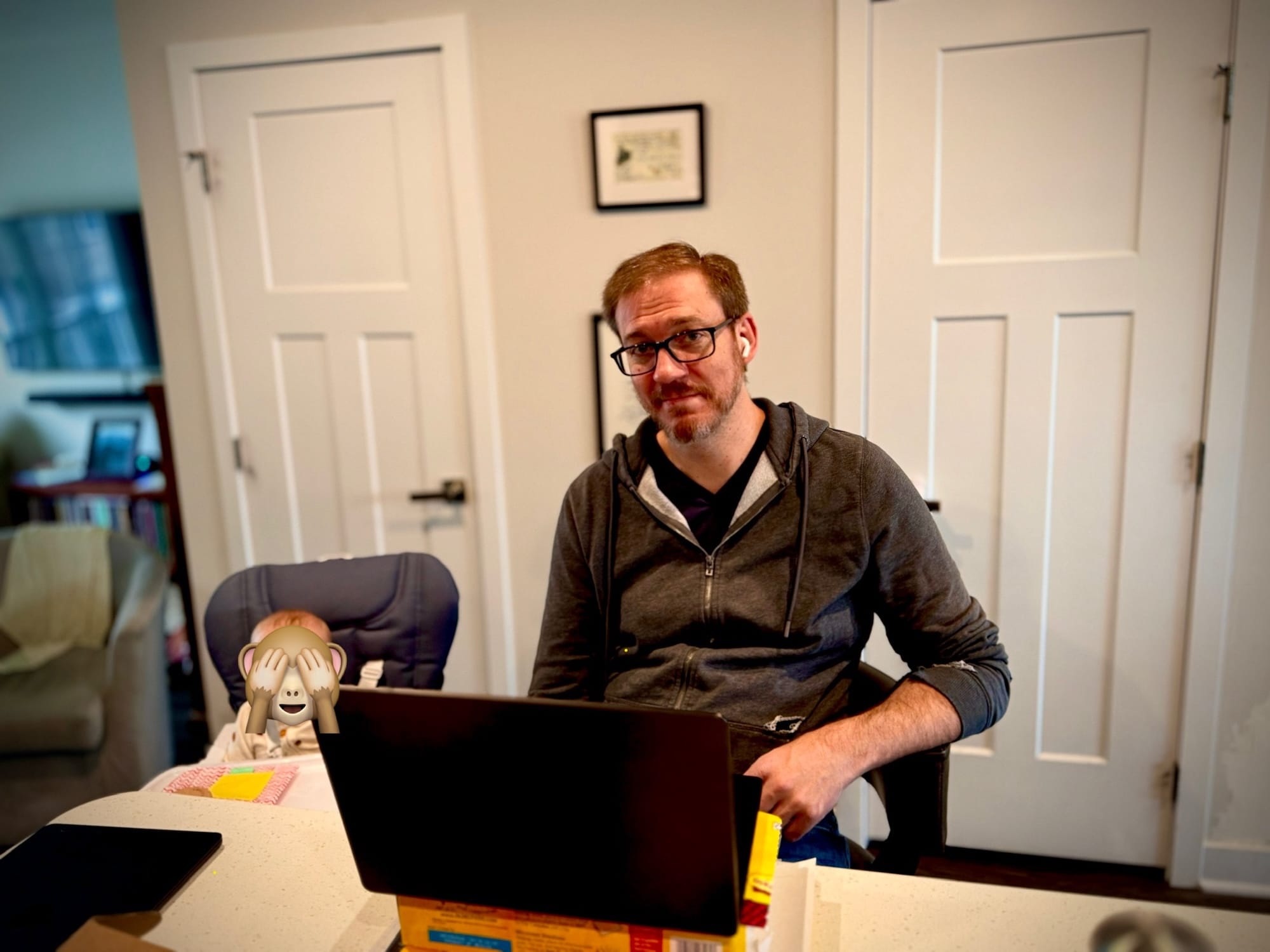
I've come to the preliminary decision that I have to pretend he doesn't exist when pursuing my creative work. Whatever I produce, whether it is published or not, will be part of what I leave behind. It will be up to him to do with it what he will, and I cannot control his reading of it or shield him from the import of the work any more than I can any random reader. That's a bit scary.
Life deals a measly portion
For as individually great a song "Wolf Like Me" is, the whole of Return to Cookie Mountain is even better. It is an album twitching with anxiety and fraught with a hint of despair just barely held at bay. OK Computer is a masterpiece in describing the technological trap we find ourselves in, but it lacks humanity, the warmth of breath. Return to Cookie Mountain traffics in the same ennui, but it is a deeply human felt-in-the-contracting-chest moment of panic. (Tunde and Sitek's first collaboration was a collection of four-track recordings titled OK Calculator.)
The album opens with the stuttering drum loop of "I Was a Lover" and with little ceremony, Tunde sets the tone for everything that comes: "I was a lover before this war/held up in a luxury suite/behind a well-barricaded door." It's kinda hard to remember now, 23 years after the fact, how odd it felt on September 11 and the months and year or two afterward. A psychological break of sorts. Tunde had moved to NYC not long before the towers came down and the whole thing affected him pretty profoundly.
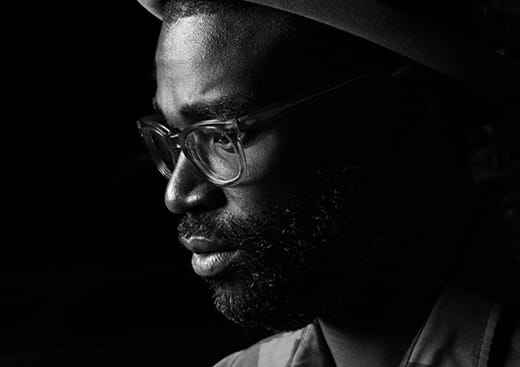
Describing this period, Tunde said, "This is after 9/11, after Y2K, and all of that shit. It was really fucking disturbing; especially that winter and into the next year. Listening to those songs on Young Liars now, it's a vast, dystopian, science fiction soundtrack to me." TVOTR early work is a coming-to-terms with this new world, and "I Was a Lover" is the synthesis of how this all played out: he "joined a priest class, plastic, inert/In a slowdance with commerce/Like a lens up a skirt."
Fitter, happier.
How the blues sound from up there?
There's a little trick that great art has, wherein it beats the shit out of you, reveals to you just how beautiful things can be and how easy it is to lose it in this world of artifact and greed. And just when you're reaching that moment of despair, just when you feel most bereft – it refuses to give you an easy solution, throws it all back on you and, perhaps, gives you a glimmer of hope.
Because we know they'd be lying to us if they made everything right.
Let's talk about the true pièce de résistance of Return to Cookie Mountain, a song so perfect they needed to call in the Thin White Duke to pin it down. Let's talk "Province."
God, I love this song. Let's table set:
Suddenly, all your history's ablaze
Try to breathe, as the world disintegrates
Just like autumn leaves, we're in for change
Holding tenderly to what remains
I don't think you can appreciate the ache in this unless you hear it.
From the opening vocal melody, which repeats with growing complexity as the song proceeds, to the pristine, almost angelic sound that escalates slowly into a huge mash of noise...there's nothing I don't love about this song. Just listen to how the vocals are all double or triple-tracked with the strangest use of harmony/counterpoint in popular music. There's nothing like it, sonically.
And the composition of the song helps elevate the message, which ultimately is one of hope, albeit a hope borne by work and courage. While the world disintegrates around us, our hope is ourselves. There is no one coming to save us.
I think of Tunde on stage with his family in the audience, of any artist who has the courage to create not only for him or herself, but as a gift or an uncontrollable need to share, to connect – despite the gaze of those who might be affected by the work. Because the work is an act of love. And here's the kernel of hope in this devastating album:
Hold these hearts courageously
As we walk into this dark place
Stand steadfast beside me and see
That love is the province of the brave
Member discussion